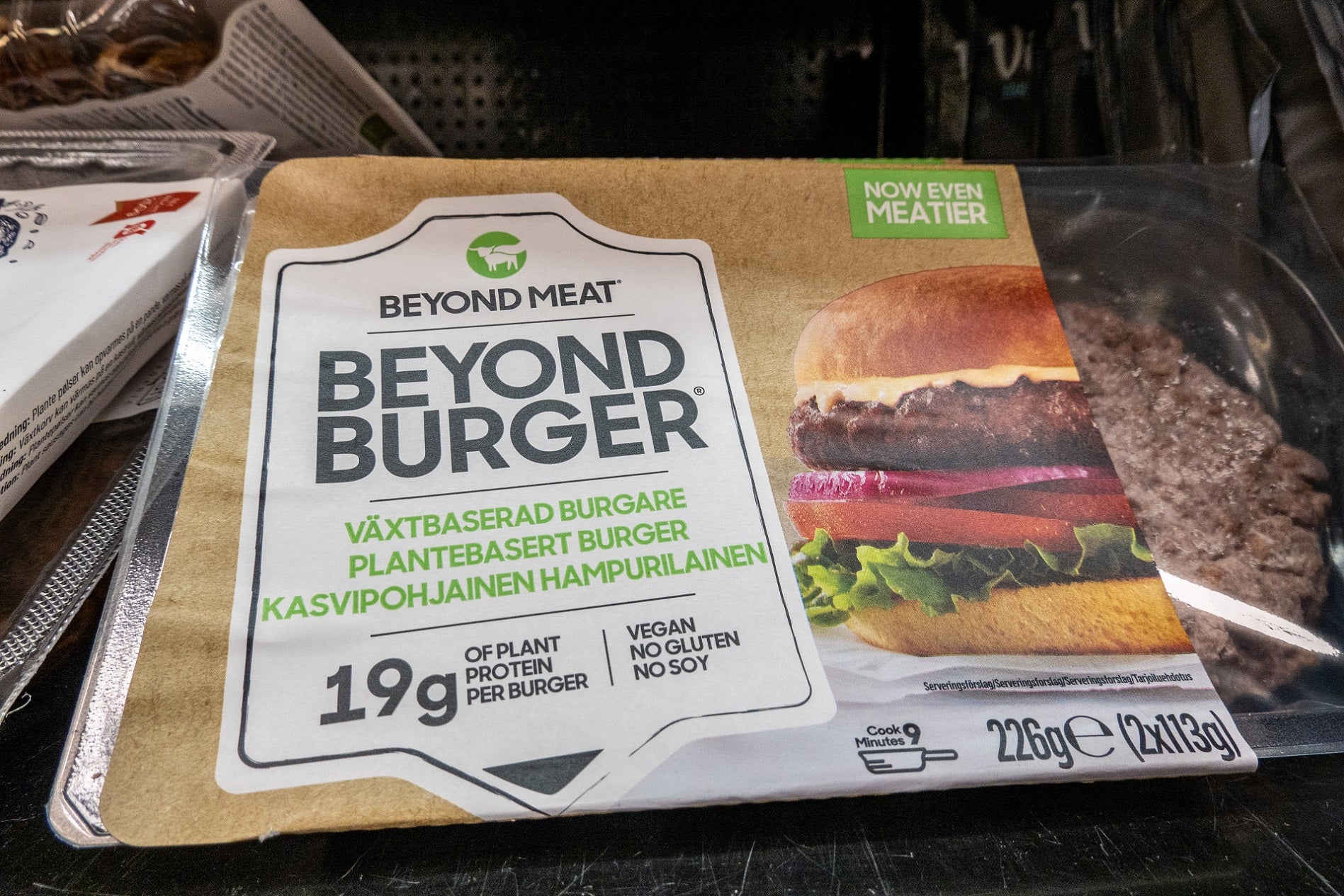
As 2023 draws to a close, we set out some of the biggest stories in food through data – from persistent inflation and problems in plant-based meat to the industry’s efforts on ESG.
Inflation remained stubborn
The price of food and non-alcoholic drinks hit a 45-year high in the UK in March and remained above double-digits throughout the year, sparking a debate around whether the industry was fuelling “greedflation”.
There was, however, some festive cheer just before Christmas with news today (20 December) that UK grocery inflation had moved below 10% for the first time since June 2022.
The persistent levels of inflation were seen across markets worldwide and prompted scrutiny of food industry supply chains and pricing strategies. In France, the country’s government was critical of some of the largest manufacturers doing business in the country. Some suppliers also found themselves literally labelled with the charge of ‘shrinkflation’ by retail giant Carrefour.
Meanwhile, in Canada, as the debate over greedflation raged, the country’s official statistics office issued data on food sector margins – and showed manufacturers grew margins at the start of the pandemic, but since 2021, they’ve been on a steady decline.
Plant-based meat’s slowdown
There remains optimism about the longer-term prospects for plant-based meat, with the sector’s advocates pointing to rising consumer interest in the links between diet and health – and between diet and the environment.
Access the most comprehensive Company Profiles
on the market, powered by GlobalData. Save hours of research. Gain competitive edge.

Company Profile – free
sample
Your download email will arrive shortly
We are confident about the
unique
quality of our Company Profiles. However, we want you to make the most
beneficial
decision for your business, so we offer a free sample that you can download by
submitting the below form
By GlobalData
However, 2023 has been a year in which some of the wind has come out of the category’s sails, with some well-known specialists seeing demand come under pressure, some businesses going to the wall and some corporate players reassessing their positions in the market.
It’s important to note that not all plant-based meat businesses have seen sales fall and some continue to attract investment. However, the travails of the likes of Beyond Meat and Quorn Foods in 2023 have shone a light on the prospects for the category in the near term.
The ongoing spotlight on ESG
Food majors worldwide have set out polices and targets in areas such as emissions, waste and packaging. There remain, though, some concerns about the progress being made in reducing emissions, tackling waste and revamping packaging.
PepsiCo’s most recent update on its efforts to reduce carbon emissions shows its footprint increasing by 4% to 61MtCO2e, against a 2015 baseline. Others are in a similar position. An analysis of the 20 largest meat and dairy producers in the world, conducted by the $70 trillion-backed FAIRR investor network, shows an increase of 3.28% between 2022 and 2023. The group includes firms like Hormel Foods (US) and New Hope Liuhe (China), suppliers to household names such as Walmart and McDonald’s respectively.
In one small glimmer of hope for investors, 40% of the 20 companies (eight firms) are now publicly reporting Scope 3 emissions, with WH Group and Tyson Foods disclosing all scopes for the first time this year.
Tyson Foods, WH Group and Danone, among others, also disclosed a fall in annual emissions. However, their progress was negated by rises from other meat and dairy giants.
Jeremy Coller, chair and founder of the FAIRR Network, said: “The failure of leading meat and dairy companies to reduce emissions underlines the urgent need for more policy focus on the food and agriculture sector. Food system emissions deserve a place at the top of the table, alongside energy and transport, as they represent an estimated third of greenhouse gas emissions and 40% of methane.”
Meanwhile, The Ellen MacArthur Foundation’s (EMF) Global Commitment progress report once again revealed several FMCG giants are woefully behind on their 2025 sustainable plastic use targets.
While the report showed good headway on some metrics such as an increasing share of post-consumer recycled content (PCR) across all plastic packaging used, overall progress has been held back by a “few large organisations”.
Notable laggards included Mars, which increased its use of virgin plastic by 14% in 2022 compared to 2019, and PepsiCo, which used 10% more in 2022 compared to 2020. Beverage giant The Coca-Cola Company used 8% more virgin plastic packaging in 2022 compared to 2019.
Some progress was made by Nestlé, which achieved a 10% reduction in virgin plastic use in 2022 compared to 2018, but the share of its plastic packaging that was reusable, recyclable and compostable decreased from 55% to 51% over the same four-year period.
Almost universal progress was made in the realm of post-consumer recycled (PCR) content. Nestlé increased the share of PCR content across total plastic packaging by 7.5%, while PepsiCo increased its share by 4.3%.

